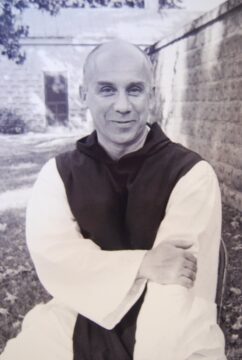 Thomas Merton was perhaps the most important Christian mystic of the twentieth century. For the past twenty-six years, he had lived as a Trappist monk at the Abbey of Gethsemani in Kentucky, and for the past three he had lived in a cinder-block hermitage in the woods. I am accused of living in the woods like Thoreau instead of in the desert like St. John the Baptist, he wrote to a friend. Whatever else can be said about Merton, and much has been said, one thing is certain: he was a monk who loved trees. One might say I had decided to marry the silence of the forest, he wrote. The sweet dark warmth of the whole world will have to be my wife. Out of the heart of that dark warmth comes the secret that is heard only in silence … Perhaps I have an obligation to preserve the stillness, the silence, the poverty, the virginal point of pure nothingness which is at the center of all other loves.
Thomas Merton was perhaps the most important Christian mystic of the twentieth century. For the past twenty-six years, he had lived as a Trappist monk at the Abbey of Gethsemani in Kentucky, and for the past three he had lived in a cinder-block hermitage in the woods. I am accused of living in the woods like Thoreau instead of in the desert like St. John the Baptist, he wrote to a friend. Whatever else can be said about Merton, and much has been said, one thing is certain: he was a monk who loved trees. One might say I had decided to marry the silence of the forest, he wrote. The sweet dark warmth of the whole world will have to be my wife. Out of the heart of that dark warmth comes the secret that is heard only in silence … Perhaps I have an obligation to preserve the stillness, the silence, the poverty, the virginal point of pure nothingness which is at the center of all other loves.
He had been searching for that center his whole life.
Le point vierge, he called it.
